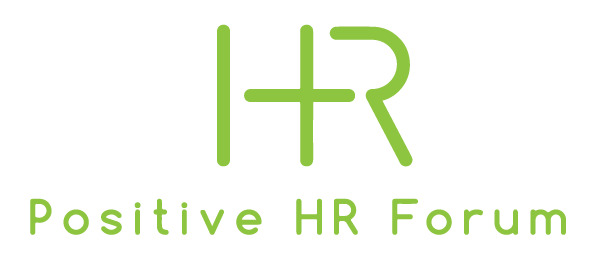07 Feb Pandemic Home Working: Four Fundamentals for Productivity

Working from home (WFH) pre-pandemic is different to WFH during the pandemic. (Post pandemic home working will probably be different too, but we’re not there yet!) Normally, a benefit of WFH is the peace and space to do uninterrupted work, while isolation can be kept at bay by creating our own personal and professional networks.
Some pre-pandemic home working advice works, some doesn’t. I’ve considered what is essential to help you, your teams and your households be productive for “pandemic home working”.
Be warned though, this article isn’t about the right desk, regular breaks, virtual meetings and avoiding biscuits. This encourages individuals to take responsibility for themselves, their households and their colleagues in a way that sets four fundamental pillars for the social principles of home working.
Set Priorities
Be clear on what the priorities are for you, your household and your work. If it’s not clear, then take time to figure it out by asking questions. While sometimes it may feel like it, not everything will need immediate or urgent attention.
For you, if you’re faced with conflicting demands, which are the most important and why? There will be different priorities at different times. Use your values to inform your priorities. Then consider how can you make your priorities reflect your actions. For me, I need to know that my two boys are OK before I can be productive at work. So, if they’re fed, comfortable and happily occupied, I know I can get on with work. If they are not, then I do need to help meet their needs before I can continue.
For your household, a similar process of what is important and why can be undertaken. It will be different for each household and it must take into account the needs of each person in the household in a fair way. Consider each individual need and how that be met.
For work, the process of asking what is important and why applies here too. For people working from home, an element of autonomy is essential to ensure work and home life can be complimentary rather than conflicting. If home workers cannot set their own work routine, then conflict will arise in the household and among colleagues.
So for staff, if you are not clear what your work priorities are then ask. If you’ve been given a list of tasks or projects, ask what needs to be done first. Ask for deadlines too. Priorities will then arise. Good managers will have thought of this, but if it hasn’t happened, use questions to help get a clear steer from your line management.
For managers, ensure that your team members know what needs to be achieved, why and by when. Then let your team get on with it. It is hard and stressful to micro manage home workers. So assign task(s), offer support, let the team get on with it but do be available for further support and questions.
Protect Boundaries
Know your boundaries and stick to them, or at least know when you’re willing to bend them. First, consider where you need boundaries and what they are, for example, these may relate to work, video calls, family time, exercise or whatever is applicable to you. What steps do you need to take to keep your boundaries in place? This might be a sign on your office door when you do not want to be interrupted, packing your laptop away at the end of the day in an out of reach place so that you do not check emails, or making sure you honour family commitments by saying no to work interruptions that are not urgent (most are not urgent!).
Take time to decide what you say “Yes” to and what you say “No” to so that you keep your boundaries in place. Having boundaries keeps both physical and mental spaces free of unwanted intruders or interruptions.
For your household, physical boundaries may help too. All household members need to understand what’s acceptable and what’s not.
At work, set boundaries that help you meet the needs of the job, while respecting what others need from you. If you think changes are needed to respect boundaries, speak up and ask questions courteously.
Follow a Routine
Being at home all the time and living life in one place means that activities can blend into one. A routine can help the transition between tasks to put your mind in the right mental space to undertake the activity productively, whether its time for family, time for work, time for switching off etc. A routine will help structure your day too. How you create your routine needs to work for you and be set by you to help meet your personal, household or work needs. A routine involves doing things in a sequence, not necessarily to a schedule.
For example, my work day morning routine is wake up, wash or shower, breakfast, walk the dog, start work. If I miss anything, I don’t feel productive as I’ve missed my transition into a work day. But at the weekends, I mix it up so that I know it’s the weekend.
Remember, routine is not a schedule. Schedules involve timings, routines don’t have to. Routine is about actions in sequence, not the timing.
Practice Self-Care
Self-care is not selfish. It’s about taking care of you so that you can help take care of others. Think of an airplane safety briefing. The instruction is always to put your oxygen mask on before helping others. If you don’t take time to look after you, then you can’t take care of anyone else.
Self-care is about making sure you do those small things that mean you are OK. Self-care is time taken to refresh, recharge and revive. This might be reading a good book, taking a bath, fun exercise, having a nap, doing something you enjoy or whatever works for you. Nutritious food, the right amount of sleep and lots of water are vital too. It’s replenishing your energy to avoid running on empty and risking burnout.
Outcomes
The steps described here create time and space for the self-care needed to support you, your role in your household and as a colleague. Please respect that everyone needs self-care.
I also hope that the four fundamentals will provide a positive mental and physical framework for productive pandemic homeworking that you might enjoy too.
Thank you for reading!
Claire Nicoll, Work Best
Claire embraces and advocates for flexible working. She has worked from home since before home working was trendy! Having achieved great work in remote or home-based roles, and worked flexibly on different projects, Claire has a wealth of experience on what makes flexible working work in all its many forms, both for business and individuals. Believing that more work can be done flexibly for the benefit of business and staff, Claire set up Work Best to share her experience through talks, workshops, training and writing to help more companies benefit from agile ways of working.
Claire has worked in different sectors across a range of roles. She is currently self-employed, undertakes associate work for The MemberWise Network and leads the Women in Sustainability Network for Stoke and Staffordshire. She has also worked for the Chartered Institution of Wastes Management, Juvenile Diabetes Research Foundation and The Prince’s Trust.


